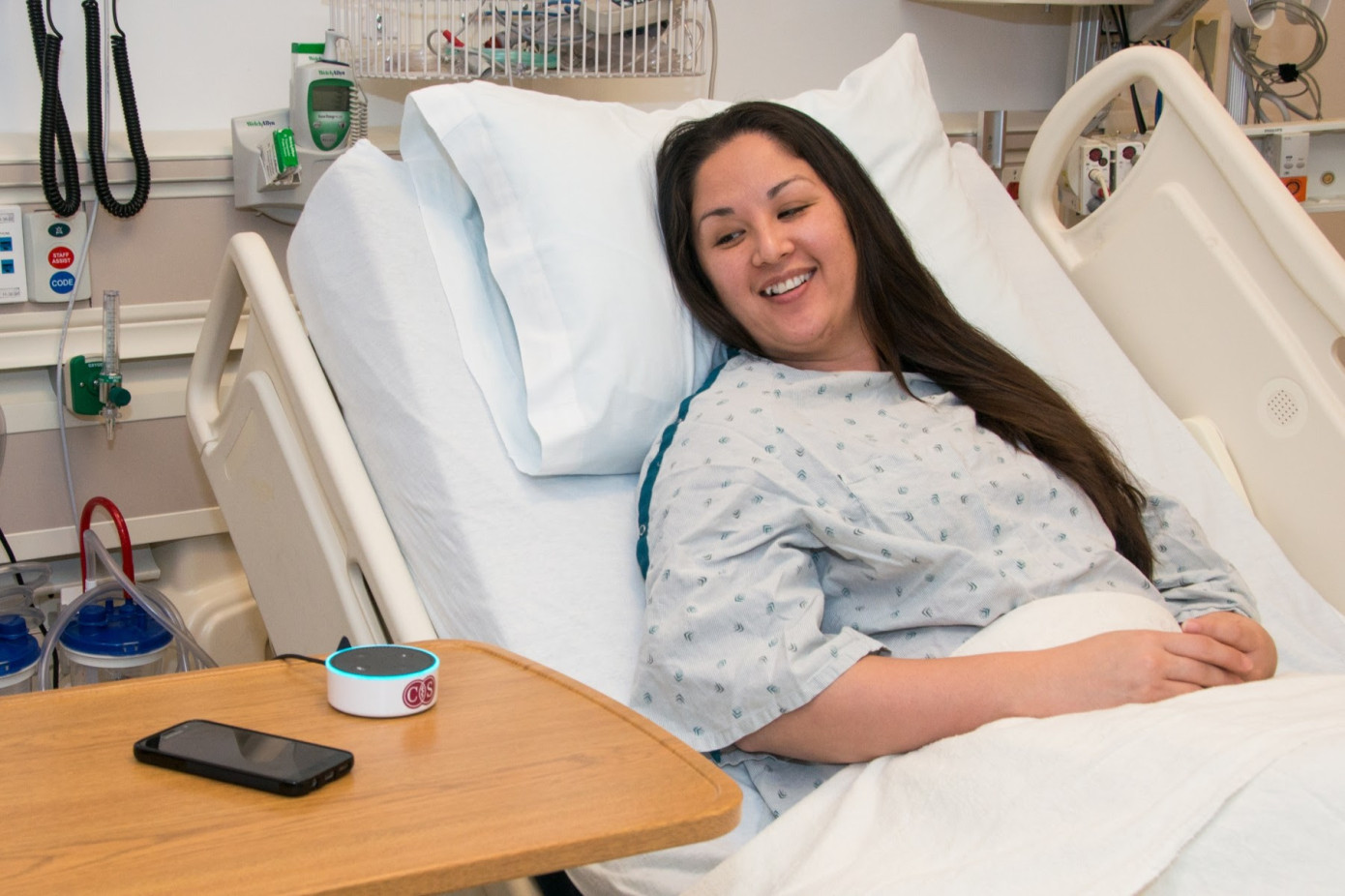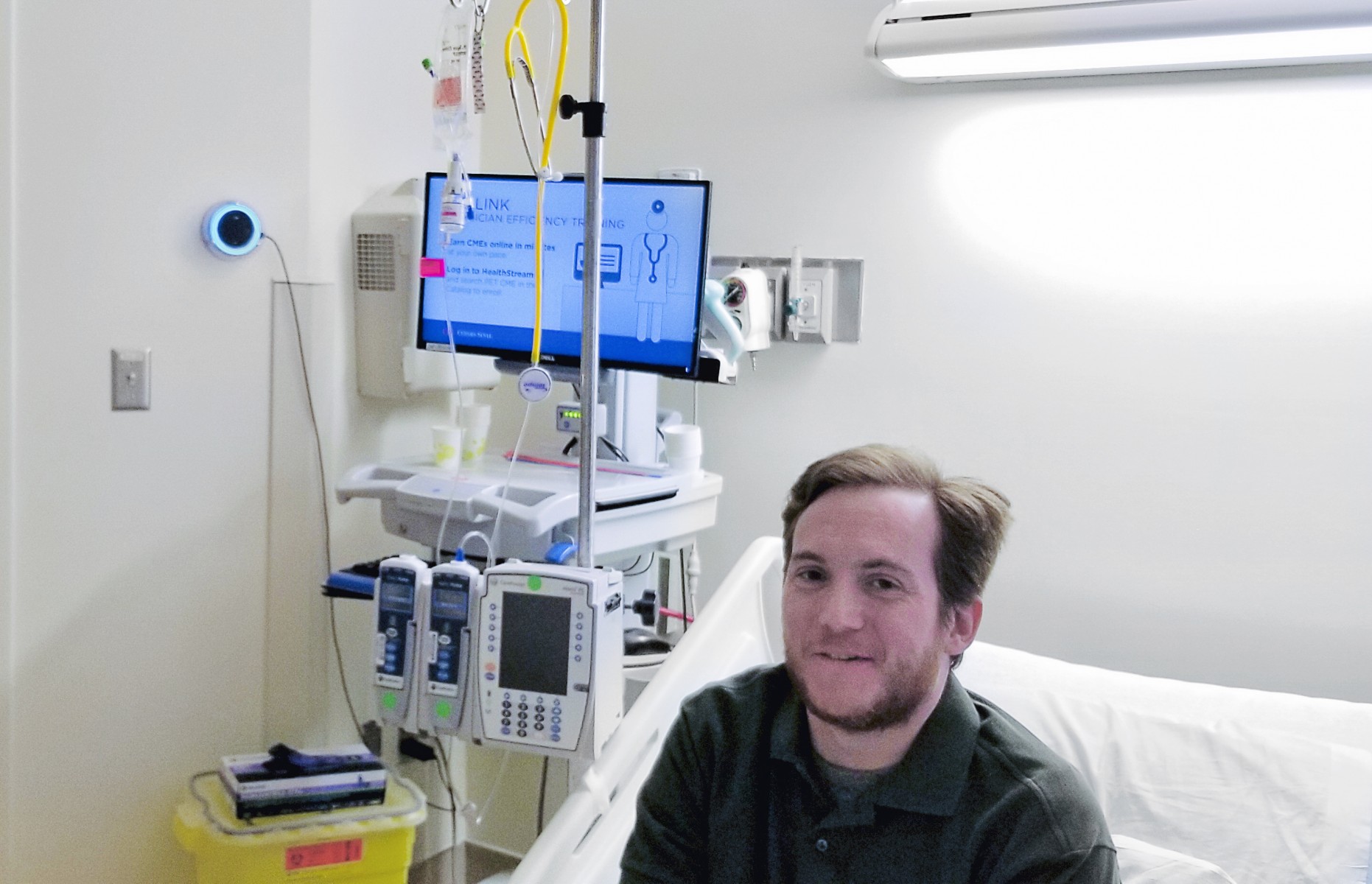
Cedars-Sinai, a non-profit hospital in Los Angeles, is conducting a pilot program using the Alexa-powered platform called Aiva to allow patients to control their experiences hands-free. Using the device in over 100 patient rooms at the hospital, the program aims to use voice-detection AI to let patients interact with nurses and control their entertainment using their voices. Aiva is the first patient-centered voice assistant platform created specifically for hospitals.
The hospital has equipped rooms with Amazon Echos for this pilot project, and patients simply tell the device when they need something. Patients are able to control entertainment aspects of their hospital stay, such as turning the TV on and off or changing channels by saying “Alexa, put on NBC.” Other commands the patient can give Aiva include assistance with clinical workers, such as summoning the nurse for assistance getting up to use the restroom.
Uniquely, the technology rerouted the patient’s requests to the appropriate caregiver, being a nurse, manager, administrator, of clinical partner. For example, pain medicine requests would be directed to a registered nurse, whereas bathroom requests would be sent to a clinical partner. In the event that a request is not addressed in a timely manner, Aiva sends the inquiry up the chain of command.
READ MORE: How Companies Are Integrating Voice Recognition Into Medicine
Aiva’s ability to direct patient requests to the individual most responsible for the associated task sets it apart from the traditional system in which nurses are often called for simple tasks such as television assistance. “Whereas previously nurses were frequently asked to help with the in-room television, Alexa does that job for us, allowing nurses to focus on providing the highest level of patient care,” said Golda Morales, assistant nurse manager of General Surgery.
The Amazon Echo devices provided by Cedars-Sinai are not limited to clinical applications and offer all standard Alexa features as well to improve the patient’s experience. Popular requests among Alexa users include playing music and games, and information regarding sports or weather.

READ MORE: Google’s Voice Recognition Project Could Revolutionize Electronic Health Records
“It rocks. I was lonely in the hospital and I said, ‘Alexa, would you be my friend?’ The device responded, ‘Of course we could be friends. You seem very nice,’” explained abdominal surgery patient Adrienne Edwards, one of the early patients who used Alexa in the post-operative setting.
One of the individuals who pushed strongly for the implication of Alexa in patient rooms was Cedar-Sinai’s executive director of Medical and Surgical Services, Peachy Hain.
“Patients young and old are now used to voice-activated devices in their homes. Since it’s familiar to them, it helps enhance their hospital experience,” Hain said. “In the hospital, patients have little to distract them from pain or loneliness.”
READ MORE: Aspen RxHealth Attains $9M in Funding for Revolutionary Pharma-App
Cedars-Sinai is leveraging Alexa and the Aiva platform to modernize the hospital patient experience, bringing AI aspects patients often have in their own home to the clinical space.
“Smart rooms are all about improving satisfaction for both patients and nurses,” said Sumeet Bhatia, founder and CEO of Aiva. “Cedars-Sinai and Aiva are giving patients more entertainment options, more control over their environment and closer communication with their care team.”
“Alexa, call the nurse.” How one hospital is testing voice assistant technology in its patients’ rooms: https://t.co/QDufYCA6Ip via @forbes #alexa #ai #HealthTech #DigitalTransformation
— Capital BlueCross (@capbluecross) February 28, 2019
Sources: Cedars-Sinai, TechCrunch







 © 2025 Mashup Media, LLC, a Formedics Property. All Rights Reserved.
© 2025 Mashup Media, LLC, a Formedics Property. All Rights Reserved.